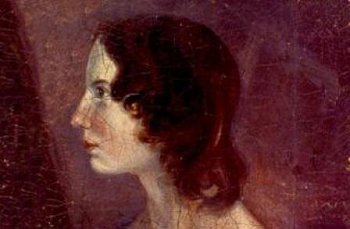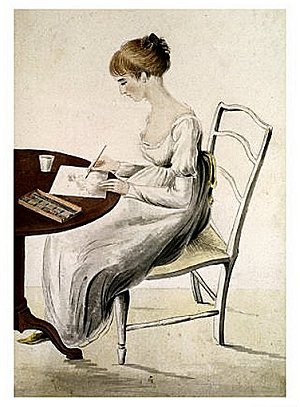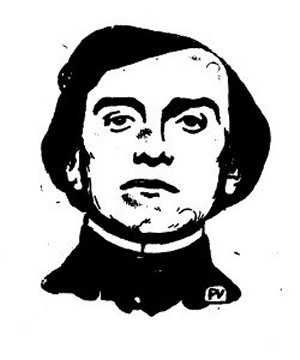Fleurs du Mal Magazine


Or see the index

Bedrijf
Schaduwloos theater. In kasten onder de planken
vlaggen met verschoten symbolen. Er zouden
kaarsen. En gazen kousen. Beloofd was zindering,
wortel en tak. Maar alles verloopt stroef, en koel
als een lege trombone. Het wachtwoord: onschuld.
Wat buiten herfst met bramen doet. Alles in de gaten.
In de bedding van het zwijgen ligt het wijzen.
Bert Bevers
verschenen in Uit de herinneringen van een souffleur, Uitgeverij Kleinood & Grootzeer, Bergen op Zoom, 2006
More in: Archive A-B, Bevers, Bert
![]()
Beaconstructor
Ik herinner me vooral
de chaos in Amsterdam
toen u de troon aannam
krakersrellen rookbommen
spontaan rondvliegende
straatstenen helicopters
die laag over de stad vlogen
je kunt het je nu bijna niet
meer voorstellen het volk
onderbrak zijn staatshoofd
meermaals dat was uw moeder
en u onderging uw lot toen al
met statigheid majesteit
u bouwde verder aan de
erfenis van de generaties
het viel in het begin niet
eens op eerst was er crisis
toen klommen we daar weer
langzaam uit we namen u
slinks nog wat macht af en
het was altijd uw statigheid
majesteit baken van rust
pas in de laatste jaren zagen
we u naast vorstin steeds meer
vrouw worden u bracht uw ouders
naar het graf waar u eerder al uw man
de prins bracht u deed dat met
waardigheid majesteit en na dat ongeluk
met uw zoon was het voor u wel klaar we
begrijpen het u zult de geschiedenis
ingaan zodra we afscheid hebben genomen
statigheid waardigheid majesteit.
Martin Beversluis
29-01-2013
kempis.nl poetry magazine
More in: Archive A-B, Beversluis, Martin

Henry Bataille
(1872-1922)
Les souvenirs
Les souvenirs, ce sont les chambres sans serrures,
Des chambres vides où l’on n’ose plus entrer,
Parce que de vieux parents jadis y moururent.
On vit dans la maison où sont ces chambres closes.
On sait qu’elles sont là comme à leur habitude,
Et c’est la chambre bleue, et c’est la chambre rose…
La maison se remplit ainsi de solitude,
Et l’on y continue à vivre en souriant…
Henry Bataille poetry
kempis.nl poetry magazine
More in: Archive A-B, Bataille, Henry

Voorspel
Voor de eerste repetitie ligt het podium er verlaten
bij, als het Bos van Wallers tussen mei en maart.
Scenario, nog zonder inkt in de marge, kreukloos
in de tas. Op het lijf. Rollen komen mij aangestaard
en stamelend nabij, ik zie ze langzaam bloed en vlees.
Aktes. Het omslaan van mijn blad voelt fijner steeds.
Coupures. Daar zit ik dan, orakelend voor intimi.
Bert Bevers
verschenen in Uit de herinneringen van een souffleur, Uitgeverij Kleinood & Grootzeer, Bergen op Zoom, 2006
More in: Archive A-B, Bevers, Bert

Emily Bronte
(1818-1848)
No Coward Soul Is Mine
No coward soul is mine,
No trembler in the world’s storm-troubled sphere:
I see Heaven’s glories shine,
And faith shines equal, arming me from fear.
O God within my breast,
Almighty, ever-present Deity!
Life–that in me has rest,
As I–undying Life–have Power in Thee!
Vain are the thousand creeds
That move men’s hearts: unutterably vain;
Worthless as withered weeds,
Or idlest froth amid the boundless main,
To waken doubt in one
Holding so fast by thine infinity;
So surely anchored on
The steadfast rock of immortality.
With wide-embracing love
Thy spirit animates eternal years,
Pervades and broods above,
Changes, sustains, dissolves, creates, and rears.
Though earth and man were gone,
And suns and universes ceased to be,
And Thou wert left alone,
Every existence would exist in Thee.
There is not room for Death,
Nor atom that his might could render void:
Thou–Thou art Being and Breath,
And what Thou art may never be destroyed.
Emily Jane Brontë poetry
(No Coward Soul Is Mine was her last poem)
fleursdumal.nl magazine
More in: Anne, Emily & Charlotte Brontë, Archive A-B, Brontë, Anne, Emily & Charlotte

Anne Stevenson
(1933)
Re-Reading Jane
To women in contemporary voice and dislocation
she is closely invisible, almost an annoyance.
Why do we turn to her sampler squares for solace?
Nothing she saw was free of snobbery or class.
Yet the needlework of these needle eyes . . .
We are pricked to tears by the justice of her violence:
Emma on Box Hill, rude to poor Miss Bates,
by Mr Knightley’s Were she your equal in situation —
but consider how far this is from being the case
shamed into compassion, and in shame, a grace.
Or wicked Wickham and selfish pretty Willoughby,
their vice, pure avarice which, displacing love,
defiled the honour marriages should be made of.
She punished them with very silly wives.
Novels of manners? Hymenal theology!
Six little circles of hell with attendant humours.
For what do we live but to make sport of our neighbours
And laugh at them in our turn? The philosophy
paused at the door of Mr. Bennet’s century;
The Garden of Eden’s still there in the grounds of Pemberley.

The amazing epitaph’s “benevolence of heart”
precedes “the extraordinary endowments of her mind”
and would have pleased her, who was not unkind.
Dear votary of order, sense, clear art,
and irresistible fun, please pitch our lives
outside self-pity we have wrapped them in,
and show us how absurd we’d look to you.
You know the mischief poetry could do.
Yet when Anne Elliot spoke of its misfortune
to be seldom safely enjoyed by those who
enjoyed it completely, she spoke for you.
[This poem refers to the memorial to Jane Austen in Winchester Cathedral.]
Anne Stevenson poetry
kempis.nl poetry magazine
More in: Archive A-B, Archive S-T, Austen, Jane

Henry Bataille
(1872-1922)
Les trains
Les trains rêvent dans la rosée, au fond des gares…
Ils rêvent des heures, puis grincent et démarrent…
J’aime les trains mouillés qui passent dans les champs,
Ces longs convois de marchandises bruissant,
Qui pour la pluie ont mis leurs lourds manteaux de bâches,
Ou qui dorment la nuit entière dans les garages…
Et les trains de bestiaux où beuglent mornement
Des bêtes qui se plaignent au village natal…
Tous ces grands wagons gris, hermétiques et clos,
Dont le silence luit sous l’averse automnale,
Avec leurs inscriptions effacées, leurs repos
Infinis, leurs nuits abandonnées, leurs vitres pâles…
Oh ! le balancement. des falots dans l’aurore !…
Une machine est là qui susurre et somnole…
Une face se montre et relaisse le store…
Et la petite gare où tinte une carriole…
Belloy, Sours, Clarigny, Gagnac et la banlieue…
Oh ! les wagons éteints où l’on entend des souffles !
La palpitation des lampes au voile bleu…
Le train qu’on croise et qui nous dit qu’il souffre,
Tandis que nous fronçons le sourcil dans nos coins,
Et nous laisse étonnés de son prolongement…
Oh ! dans la halte verte où l’on entend les cailles,
Le son du timbre triste et solitaire !… Et puis
Les voies bloquées avec au loin un sifflet qui tressaille,
Les signaux réguliers dans le dortoir des nuits…
Des appels mystérieux que l’on ne comprend pas…
Et, — oh ! surtout ! — après des bercements sans fin,
Où l’âme s’est donnée comme en une brisure,
L’entrée retentissante, avec un bruit d’airain,
De tout l’effort joyeux et bondissant du train,
Dans les grandes villes pleines de murmures !…
C’est là que vient se casser net le pur rayon
Qui m’a conduit d’un rêve à l’autre par le monde,
Rails infinis, sous le beau clair de lune et les fourgons,
A qui j’ai confié l’amertume profonde
De tous mes chers départs et tant d’enchantements…
J’aime les trains mouillés qui passent dans les champs.
Henry Bataille poetry
kempis.nl poetry magazine
More in: Archive A-B, Bataille, Henry

Berchtesgaden
Deze stilte tussen bergen maakte ik niet
eerder mee dan nu. Knielend naar het luchtledig
vergezicht van dat verre vroeger vermoed ik
in de wouden duistere geheimen. Met de geur
van amandel, van kerosine ook. Kijk ze toch
opstijgen als statige, o zo trage zeppelins.
“Nieuwe wegen zijn nooit weg”, liggen tegen
lome hellingen stoffige paden te overwegen.
Het aanzicht is craquelé. Dat moet ik schrijven.
Avonden zwijgen hier in vol ornaat, als priesters
in lege kerken. Tegen de lucht hangen koppels
kraaien, er zijn er veel, de grote zwarte vogel uit.
Bert Bevers
uit Afglans, Uitgeverij WEL, Bergen op Zoom, 1997
kempis.nl poetry magazine
More in: Archive A-B, Bevers, Bert

Neerkomst
De dichter kuiert langs een haven. “Kijk”,
verplicht hij zich: de schepen die aankomen
zijn ver van de verlaten kade af. Komen ze
thuis of zijn ze halverwege het reizen? Hij weet
het niet. Schepen slapen als paarden, dat ziet
hij wel. Een onzichtbare zak haver voor de muil
hebben ze. Hun verzonnen vel trilt ongedurig
van nieuwsgierigheid naar al die verre einders.
Vermoeden van weemoed komt hem langs.
Langs pakhuizen maakt een meisje een radslag.
Niks tastend, voluit gaand. Hij prevelt wat
hij ziet: “Wat komt zij mooi neer.”
Bert Bevers
uit Afglans, Uitgeverij WEL, Bergen op Zoom, 1997
kempis.nl poetry magazine
More in: Archive A-B, Bevers, Bert

Rupert Brooke
(1887-1915)
TIARE TAHITI
AMUA, when our laughter ends,
And hearts and bodies, brown as white,
Are dust about the doors of friends,
Or scent ablowing down the night,
Then, oh! then, the wise agree,
Comes our immortality.
Mamua, there waits a land
Hard for us to understand.
Out of time, beyond the sun,
All are one in Paradise,
You and Pupure are one,
And Taü, and the ungainly wise.
There the Eternals are, and there
The Good, the Lovely, and the True,
And Types, whose earthly copies were
The foolish broken things we knew;
There is the Face, whose ghosts we are;
The real, the never-setting Star;
And the Flower, of which we love
Faint and fading shadows here;
Never a tear, but only Grief;
Dance, but not the limbs that move;
Songs in Song shall disappear;
Instead of lovers, Love shall be;
For hearts, Immutability;
And there, on the Ideal Reef,
Thunders the Everlasting Sea!
And my laughter, and my pain,
Shall home to the Eternal Brain.
And all lovely things, they say,
Meet in Loveliness again;
Miri’s laugh, Teipo’s feet,
And the hands of Matua,
Stars and sunlight there shall meet
Coral’s hues and rainbows there,
And Teüra’s braided hair;
And with the starred tiare’s white,
And white birds in the dark ravine,
And flamboyants ablaze at night,
And jewels, and evening’s after-green,
And dawns of pearl and gold and red,
Mamua, your lovelier head!
And there’ll no more be one who dreams
Under the ferns, of crumbling stuff,
Eyes of illusion, mouth that seems,
All time-entangled human love.
And you’ll no longer swing and sway
Divinely down the scented shade,
Where feet to Ambulation fade,
And moons are lost in endless Day.
How shall we wind these wreaths of ours,
Where there are neither heads nor flowers?
Oh, Heaven’s Heaven! — but we’ll be missing
The palms, and sunlight, and the south;
And there’s an end, I think, of kissing,
When our mouths are one with Mouth …
Taü here, Mamua,
Crown the hair, and come away!
Hear the calling of the moon,
And the whispering scents that stray
About the idle warm lagoon.
Hasten, hand in human hand,
Down the dark, the flowered way,
Along the whiteness of the sand,
And in the water’s soft caress,
Wash the mind of foolishness,
Mamua, until the day.
Spend the glittering moonlight there
Pursuing down the soundless deep
Limbs that gleam and shadowy hair,
Or floating lazy, half-asleep.
Dive and double and follow after,
Snare in flowers, and kiss, and call,
With lips that fade, and human laughter
And faces individual,
Well this side of Paradise! …
There’s little comfort in the wise.
Source: Rupert Brooke. London: Sidgwick & Jackson, 1915.
Rupert Brooke poetry
kempis.nl poetry magazine
More in: Archive A-B, Brooke, Rupert

Bert Bevers
Caprice
Een gedicht zwicht niet voor het schuurpapier
van de logica en dus spoed ik mij op de cadans
van een stencilmachine in dromen door een stad
die het Milaan van Ermanno Olmi moet zijn.
Hoe er oogharen van Lombarden in hun keramiek
zijn beland, er verraad à gogo wordt gepleegd.
Beloftes aan het verleden hebben geen zin.
Verschenen in Andere taal, Litera-Este, Borgerhout, 2010
kempis.nl poetry magazine
More in: Archive A-B, Bevers, Bert

Henry Bataille
(1872-1922)
Le beau voyage
Les trains rêvent dans la rosée, au fond des gares…
Ils rêvent des heures, puis grincent et démarrent…
J’aime ces trains mouillés qui passent dans les champs,
Ces longs convois de marchandises bruissant,
Qui pour la pluie ont mis leurs lourds manteaux de bâches,
Ou qui forment la nuit entière dans les garages…
Et les trains de bestiaux où beuglent mornement
Des bêtes qui se plaignent au village natal…
Tous ces rands wagons gris, hermétiques et clos,
Dont le silence luit sous l’averse automnale,
Avec leurs inscriptions effacées, leurs repos
Infinis, leurs nuits abandonnées, leurs vitres pâles…
Henry Bataille poetry
kempis.nl poetry magazine
More in: Archive A-B, Bataille, Henry
Thank you for reading Fleurs du Mal - magazine for art & literature